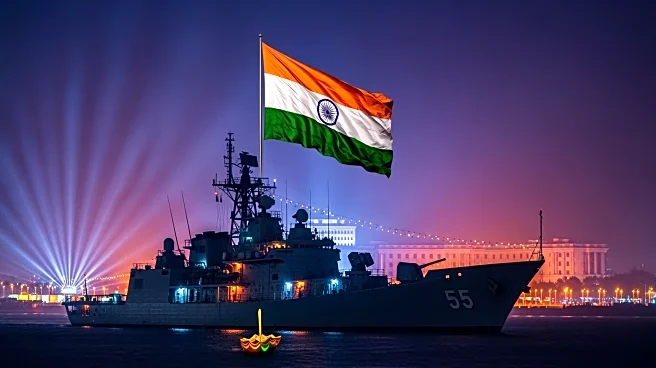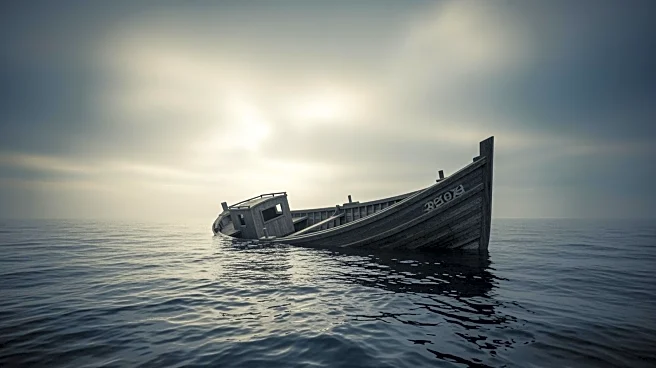What's Happening?
Prime Minister Narendra Modi celebrated Diwali aboard India's indigenously built aircraft carrier, INS Vikrant, emphasizing the nation's military strength and self-reliance. During his speech, Modi highlighted
the coordination of India's armed forces, which he credited for compelling Pakistan to surrender swiftly during Operation Sindoor. He underscored the importance of self-reliance in defense, noting that India's defense production has tripled over the past decade, with significant strides in indigenous manufacturing of military equipment. Modi also addressed the reduction of Naxal-Maoist extremism in India, attributing the success to the valor of the security forces. Additionally, he emphasized the Indian Navy's role in securing maritime routes and India's readiness to provide humanitarian assistance globally.
Why It's Important?
This event underscores India's strategic focus on enhancing its military capabilities and self-reliance in defense production. By reducing dependency on foreign imports, India aims to strengthen its defense sector and become a leading defense exporter. The reduction in Naxal-Maoist extremism highlights improved internal security, which can foster economic development in previously affected regions. The Indian Navy's role in securing maritime routes is crucial for global trade, as a significant portion of the world's oil supply and container shipments pass through the Indian Ocean. India's proactive stance in providing humanitarian aid enhances its global standing as a responsible and reliable partner.
What's Next?
India is likely to continue its focus on self-reliance in defense, with further investments in indigenous military technology and production. The government may also intensify efforts to completely eradicate Naxal-Maoist extremism by the March 2026 deadline. On the international front, India is expected to strengthen its maritime security initiatives and expand its role in global humanitarian efforts, potentially increasing its influence in international affairs.
Beyond the Headlines
The emphasis on self-reliance and military strength reflects a broader nationalistic agenda that could influence India's domestic and foreign policies. The focus on indigenous production aligns with the 'Make in India' initiative, which aims to boost manufacturing and create jobs. The reduction in Naxal-Maoist extremism could lead to increased investment and development in previously affected areas, contributing to regional stability and economic growth.










